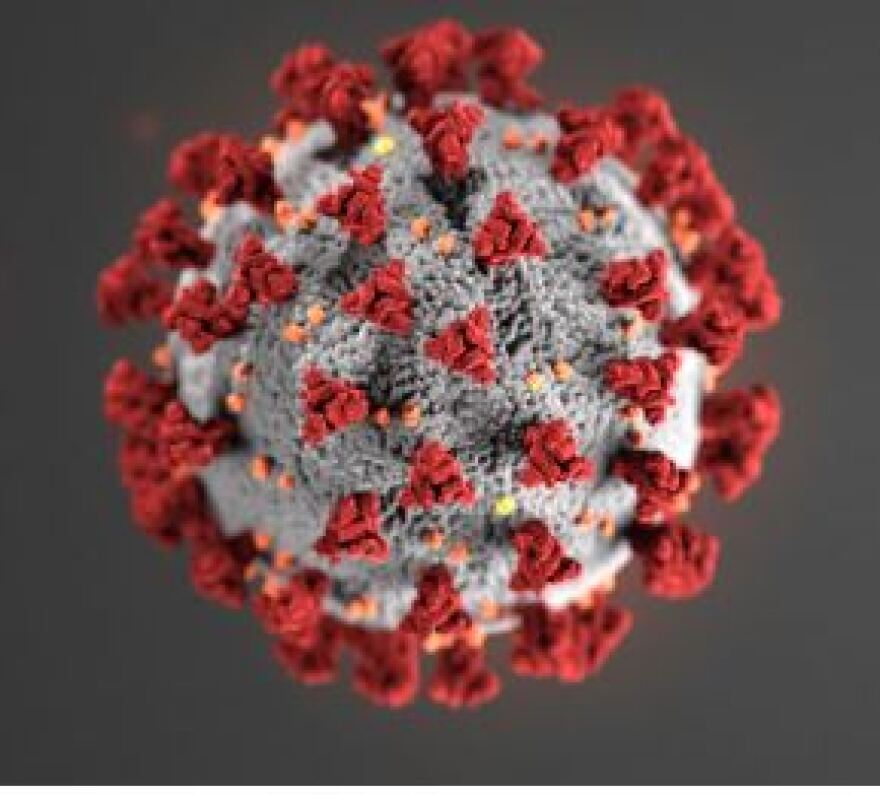Last week, Utah Gov. Gary Herbert issued an executive order freezing evictions until May 15. The governor expects tenants to have a bit more money in their pockets by then, due to unemployment benefits and funding from the federal CARES Act. But some renters don’t qualify for those benefits.
It’s Cris Mora Rubio’s freshman year in his nursing program at Westminster College. The 19-year-old moved to Park City with his family in 2009 and is outspoken about his status as an undocumented immigrant. He’s organized a petition to lower or postpone the rent for Park City apartment complexes until folks can get back to work. Mora Rubio says it’s important to him to speak for his community.
“I’ve been very aware that my situation is different from others, though there are a lot of people who are like me who aren’t as outspoken as I am,” Mora Rubio said.
A recent report from the Center for Migration Studies shows at least 92,000 undocumented immigrants live in Utah, as of 2018. Most people in the U.S. without documentation – about two-thirds – overstayed their visas, while the rest entered the country illegally.
Undocumented workers do file taxes through an individual taxpayer identification number, or ITIN — not a social security number. Those who use an ITIN won’t qualify for aid from the $2.2 trillion federal CARES Act, which sends a one-time check of $1,200 per adult and $500 per child. Mora Rubio says that’s not fair.
“To me, we are an essential part of this community, too,” Mora Rubio said. “We contribute tax-wise, but also just ideas and diversity as well. I think we’re an important part of this community, and to be ignored like this just doesn’t seem just to me.”
Additionally, undocumented workers don’t qualify for unemployment benefits through the state, which also gets a boost from the federal stimulus package – an additional $600 in unemployment benefits per week.
In 2016, the Pew Research Center reported undocumented workers are most represented in agriculture, construction and leisure and hospitality industries. The U.S. Bureau of Labor Statistics reported leisure and hospitality jobs fell by 459,000 in March, mostly in food services, as a result of COVID-19. But Mark Alvarez, an attorney who often works with immigrants, says whether they’re employed or not, people without documentation won’t see financial relief.
“Some undocumented workers may be considered essential workers, but, in fact, they’re not working,” Alvarez said. “Other undocumented workers, who clearly are essential workers, perhaps picking food that we’re going to be eating in the next few weeks and months, they’re still working, but they’re not covered by any of these COVID-19 relief packages.”
Voices for Utah Children Executive Director Moe Hickey says his organization is estimating around 450 families in Summit County where this could be an issue. Hickey says the COVID-19 pandemic has shown that many people don’t have access to resources they really need right now, like an internet connection and even accurate information. But if rent continues to be a problem for some, Hickey says it could exacerbate the public health crisis.
“Because families are getting let go from their jobs, I’m already hearing about people now moving out of one apartment into another apartment with another family,” Hickey said. “Just increasing the risk, and in some cases, it’s multigenerational, so you have an older person with an infant because of the two families.”
Mora Rubio says he doesn’t expect any action from the federal government, which has stalled on immigration reform in recent years. He appreciates the work by community nonprofits, such as the Christian Center of Park City, for supporting immigrant families through its food pantry and basic assistance fund. But he says his community is fearful of repercussions by landlords, and what Mora Rubio wants is a show of support from city leaders.
“They don’t even have to do anything — they don’t have to donate, they don’t have to do anything like that,” Mora Rubio said. “They just have to stand behind the cause, and that’s going to legitimize our points enough to pressure the landlords to do something more.”
Mora Rubio’s petition on change.org calls for 1,000 signatures of support. After that, he plans to survey neighborhoods to get a better understanding of the need there.
Herbert’s executive order halting evictions ends May 15, at which point tenants are required to pay both April and May rent to their landlords.
Visit this link for more information about COVID-19 resources for undocumented and mixed-status families.





